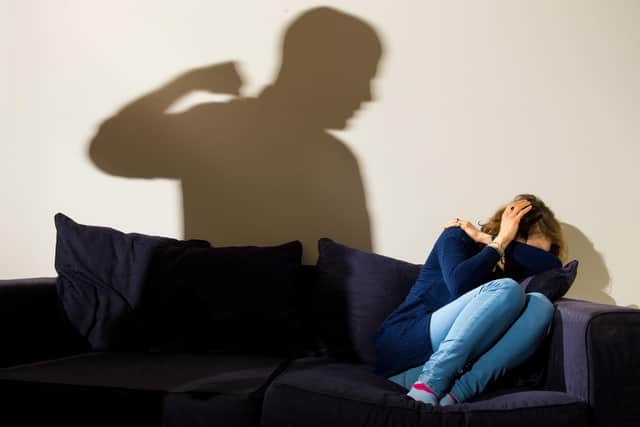World Cup: NSPCC warns of domestic abuse rise after concerns about children jumped by a third during previous tournament
and live on Freeview channel 276
Analysis by the child protection charity found that during the previous football World Cup contacts to its Helpline about domestic abuse jumped by a third on the monthly average, reaching more than 1,000.
They said heightened emotional stress, alcohol and betting on the games could act as potential triggers to incidents in the home over the next four weeks.
Advertisement
Hide AdAdvertisement
Hide AdThe charity is concerned that hundreds of thousands of children could be at risk as new Government data revealed almost 250,000 children are impacted by domestic abuse in England


The findings chime with research showing a direct correlation between high profile sporting events and reports of domestic abuse to emergency services, agencies, and charities.
During the last World Cup in 2018, the NSPCC’s Helpline - which takes calls from adults concerned about children - delivered 1,060 child welfare contacts about domestic abuse, a 33 per cent increase on the monthly average for that year.
And Childline, which is run by the NSPCC, saw a 17 per cent increase on the monthly average for the number of counselling sessions delivered to children and young people about domestic abuse.
Advertisement
Hide AdAdvertisement
Hide AdA 13-year-old girl, who contacted Childline during the 2018 World Cup, said:
“My brother gets very aggressive when he drinks, he shouts at us for no reason and demands money from my mum.
“Today, after the England game, he came home drunk and hit my mum in the face, so I had to call the police. He’s been causing trouble for years and, to be honest, I’m done with him. I wish he could just disappear from our lives so that me and my mum weren’t so scared all the time.”
A parent of another child, who contacted the NSPCC’s Helpline during the last World Cup, said:
Advertisement
Hide AdAdvertisement
Hide Ad“My daughter’s best friend told me her dad is hitting her and her mum. He drinks a lot at the pub and then gets abusive and violent when he’s back home.
“They feel they have no way out as they depend on him financially, and they fear he’d punish them if anyone finds out about his behaviour. I worry my daughter and I can be identified if I tell children’s services. I don’t know what to do.”
Jess, whose biological father subjected the family to years of domestic abuse, said: “I remember the ’98 World Cup – the final was on my birthday.
“I don’t think he was a big football fan, it was just another way he was able to control us.
Advertisement
Hide AdAdvertisement
Hide Ad“Of course, if his team lost, we’d all feel the effects. His mood would change, and my mum would be the one who he’d direct most of his anger towards.
“We were always on eggshells but when the football was on, the ending would feel inevitable.”
The warning comes after children were officially recognised as victims of domestic abuse as part of the Domestic Abuse Act in January.
The NSPCC said the changes should lead to the impact of domestic abuse on children being better understood, their needs considered, and support given.
